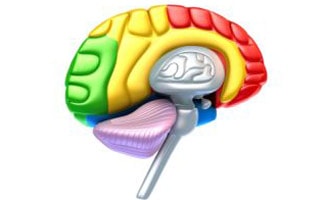Best DNA Testing For Health Reasons: What Can You Learn From At-Home Tests?
 Direct to consumer genetic testing is a booming business these days, but are these tests legitimate? Yes… in some cases. Many at-home DNA tests to determine ancestry, as well as several paternity tests are legit. But what about at-home DNA testing for health reasons?
Direct to consumer genetic testing is a booming business these days, but are these tests legitimate? Yes… in some cases. Many at-home DNA tests to determine ancestry, as well as several paternity tests are legit. But what about at-home DNA testing for health reasons?
Article Overview
How Accurate Are At Home Health Tests?
Various types of DNA health testing kits on the market claim to determine your predisposition for diseases and carrier status, give you your cellular age, or analyze your DNA for weight loss and fitness purposes. Are they worth it? And are they actually accurate? See what we’ve uncovered before putting a dent in your wallet.
Best At-Home DNA Test For Health Risks: 23andMe Review
23andMe is the only at-home health DNA testing that’s approved by the U.S. Food and Drug Administration (FDA) for genetic testing for disease predisposition and carrier status. 23andMe has been offering DNA testing for medical purposes for several years now, but in April 2017, the company finally received FDA approval for several of its testing reports. How does it work? What FDA-approved tests can you order online? And what will they tell you?
How Does 23andMe Work?
All you have to do is order 23andMe’s $199 Ancestry + Health kit online. Once your saliva collection kit arrives at home, you spit in the provided tube per instructions, register your test kit online, and send in your sample in their pre-paid package. You should receive your results within six to eight weeks.
The 23andMe genetic health risk tests work by isolating DNA from your saliva sample, which they test for more than 500,000 genetic variants. The presence or absence of some of these variants determines a possible increased risk for developing any one of the following diseases or conditions:
- Late-onset Alzheimer’s disease
- Parkinson’s disease
- Celiac disease, a disorder with the inability to digest gluten
- Type 2 diabetes
- BRCA1/BRCA2 (risk based on a limited set of variants for breast, ovarian and other cancers)
- Alpha-1 antitrypsin deficiency, a disorder that raises the risk of lung and liver disease
- Early-onset primary dystonia, a disorder involving involuntary muscle contractions
- Gaucher disease type 1, an organ and tissue disorder
- Factor XI deficiency, a blood clot disorder
- Hereditary thrombophilia, a blood clot disorder
- Glucose-6-Phosphate Dehydrogenase deficiency (G6PD), a red blood cell condition
- Hereditary hemochromatosis, an iron overload disorder
Other 23andMe Health-Related Results
23andMe’s DNA test for health issues also offers more than 40+ FDA-approved carrier status reports that can tell you if you carry genes for certain inherited health conditions like Cystic Fibrosis, Sickle Cell Anemia and Hereditary Hearing Loss. They also include 8 wellness reports (lactose intolerance, for example), and 30+ trait reports (male bald spot, unibrow, etc.). Check out the following video to learn more about 23andMe’s health testing.
What Do These Results Tell You?
23andMe’s website includes important disclaimers that describe exactly what these tests do and don’t tell you regarding their DNA testing for health risks and carrier status.
Genetic Health Risk Reports
Each genetic health risk report describes if a person has variants associated with a higher risk of developing a disease, but does not describe a person’s overall risk of developing the disease. These reports are not intended to tell you anything about your current state of health, or to be used to make medical decisions, including whether or not you should take a medication or how much of a medication you should take.
Carrier Status Reports
Our carrier status reports can be used to determine carrier status, but cannot determine if you have two copies of any genetic variant. These carrier reports are not intended to tell you anything about your risk for developing a disease in the future or anything about the health of your fetus, or your newborn child’s risk of developing a particular disease later in life.
Read our in-depth 23andMe Review
What About Other At-Home DNA Testing For Health Reasons?
There are a growing number of direct to consumer DNA tests on the market that claim to predict cellular age or fitness DNA profiles and offer personalized lifestyle and activity recommendations. Most, however, just aren’t backed by solid science… yet. Here’s what we’ve uncovered about some other popular DNA tests for health reasons:
DNA Test To Discover Your Lifestyle & Behaviors

Orig3n helps you determine how your genes affect your mind and body. In addition to nutritional and fitness tests, they offer more unique tests for specific physical and emotional traits like Superhero (strength, speed, etc.), skin aging, hair, joint care, tolerance to certain foods and vitamins, metabolism, child development and more (including a U.S. Ski & Snowboard test to see how built you are for the slopes).
Orig3n sent us a free sample test to try in exchange for an honest review of their product. We did the fitness and nutrition tests which are two of the most popular. The process was similar to other traditional DNA tests in that you swipe your cheek with a swab and send your sample back in a pre-paid envelope.
It took about four weeks to get results back. Despite the fact that it tested for a wide variety of things, the information I received back wasn’t very in-depth. Each result only had three variants to determine how I rate in comparison to others (normal, gifted, etc). However, if I clicked on a specific item, I was able to find a more detailed analysis of the result and what it means.
For instance, I received a result of “adapt” for bitter taste, which means I might not be able to taste bitter foods and I’m part of the 13% of the population that has this variant. This suggest that I am more likely to enjoy brussel sprouts (which is spot on!). I also learned that I am “gifted” when it comes to processing caffeine and among the 40% of people who metabolize it four times faster than others (which explains why I’ve never been a coffee drinker).
DNA Test To Determine Health Risks
International Biosciences is a United Kingdom-based company that globally markets directly to consumers and claims a variety of disease risk and predisposition results. This company, however, doesn’t hold approval by any regulatory or scientific organization so it’s unclear how accurate their science and results are in determining genetic health risks. They also offer paternity and relationship testing, as well as wellness and lifestyle tests.
DNA Test To Assess How Well You Are Aging
TeloYears is a relatively new at-home DNA test that calculates the age of the DNA in your cells and claims to tell you how well you are aging. The test measures the length of telomeres, the caps that cover the ends of chromosomes (telomeres shorten as a person ages). It’s worth taking the test if you want to know how your cells are aging so you can make lifestyle changes. But otherwise, the science isn’t there yet. Companies like TeloYears claim that shortened telomeres are linked to age-related illness. The discovery of the link between telomere length and aging is relatively recent, and experts warn that not enough is known to interpret a link to illness yet. Large scientific studies have yet to prove a direct link between illness and telomere length.
DNA Test To Find Your Fitness & Sport Genetics
Fitness and sports genetics testing offered by companies like UK-based DNAFit claim that they can analyze your DNA to tell you the best, personalized way to reach your fitness and nutrition goals. But according to experts, there is no scientific predictive value in these tests. In fact, 23 geneticists from around the world released a consensus statement in the British Journal of Sports Medicine that begins, “The general consensus among sport and exercise genetics researchers is that genetic tests have no role to play in talent identification or the individualized prescription of training to maximize performance.” Sorry, fitness folks. Maybe one day!
Rob, a personal trainer and nutrition coach from Minimal Fit based out of London, England used a DNAFit test to learn about this health and fitness. He shared with us his first-hand experience and what he learned from the results.
It was interesting that I had a low sensitivity to carbs and fats, meaning I can eat more of them than most people without getting all of the calories from them. Good for staying in shape but not so good for my food bill! I have to eat more than most people to feel full and get my daily calorie requirements. The concept of learning about what your body responds best to from your unique genetic make-up is interesting. It also goes to show why some people respond well to low carb diets while others do not.
What Else Can You Learn From 23andMe And Other DNA Tests?
23andMe is a unique DNA testing company in that it not only offers DNA medical testing, but it also gives you insight into your family’s ancestry. You can learn where your ancestors lived and locate living relatives. Be sure to check out our reviews of 23andMe and other ancestry DNA tests to learn more.
Why are you considering doing a DNA test to determine your health risks?






I’m kind of torn when it comes to these tests, like I’m curious to know what my chances are of getting a disease, but is there really much I can do about it if I’m doomed to get it?
It’s a good point. Just because you might be pre-disposed genetically, doesn’t means you’ll actually develop it. But if you know you have the gene, maybe it’ll affect how you act and influence if you get it…